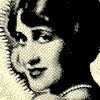Master Harold and The Boys
Unconsciously, I haven't written a review with a rating in it. There are no stars, thumbs, or synopsis. I wonder if the critic's role is to decipher between good and bad or to understand the work. I've been in the latter camp, but I hope to try a bit of both.
Master Harold is set in a world of dreams and nightmares. The characters transcend the daily disappointments and evils by dreams. Each individual has their own aspirations, but they all recognize the representation of their hopes in dancing. The perfection and happiness they have in their dreams is symbolized by the gracefulness of ballroom dancing. But these dreams are shattered by the nightmares of reality: the disgusting and humiliating depths of which people fall into. The chamber-pot most fully realizes their dreams perverted as only it can in its representation of human waste and pitifulness.
Sam, Willie, and Hally all dream for a world without hatred. They are entranced by the art of ballroom not for its physical beauty but for its inner significance. To them, ballroom is paradise found. In the real world they encounter the evils of racism and familial disappointment, but in paradise there is no evil… “Nobody trips or stumbles or bumps into anybody else. That’s what that moment is all about. To be one of the finalists on that dance floor is like…like being in a dream about a world where accidents don’t happen” (45). But men, by their own sins of hatred, always lose paradise and so it must reside in their world of dreams.
It is Hally who casts them out. Sam and Willie, while flawed, are willing to put aside their cruelty in order to believe in ballroom dancing, but Hally cannot. While he fantasizes about perfection, the hurt and horrors he has witnessed in the imperfect world from an infantilized father has left him distrustful of any good left. How can there be paradise if in it there are no fathers, but only animals who can do no better than defecate upon themselves? There is no ballroom dancing, there is no absence of suffering or hate, “Do you know what the winner’s trophy is? A beautiful, big chamber-pot with roses on the side, and it’s full to the brim with piss. And guess who I think is going to be this year’s winner?” (52). But there is no winner. All that is left standing is three stumbling dancers, wondering why they were bumped into.
Fugard gives us an answer. He says that we trip each other up because of hatred. It is easy to listen to Hally’s words spitted with racism, and attribute our stumbling because of that, but Fugard wants us to understand that it is much simpler, it is hatred, no matter how we phrase it. Willie stumbles into Hilda because he beats her. Hally stumbles into Sam because of racism. Hally stumbles into his father because of self-hatred. He can only distract himself long enough with the promises of ballroom so long as he does not fall into the horrors of his father’s chamber pot, and he is not ready to practice the grace it takes to avoid it. He trips, falls, and crashes right into Sam and Willie bringing them down with him.
Labels: Master Harold, play


0 Comments:
Post a Comment
Subscribe to Post Comments [Atom]
<< Home